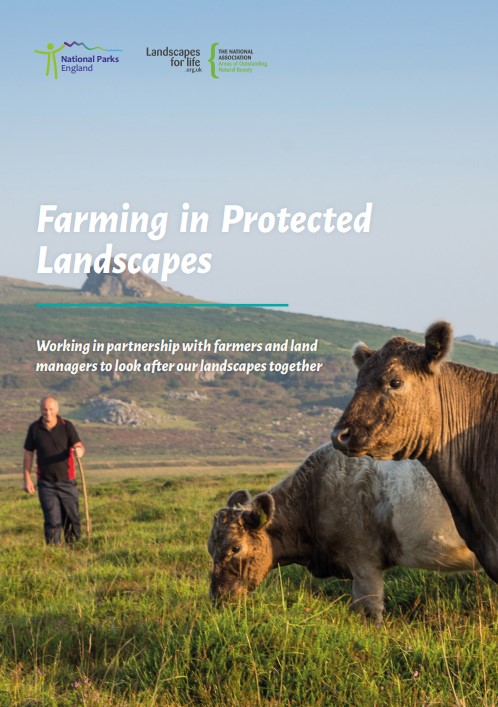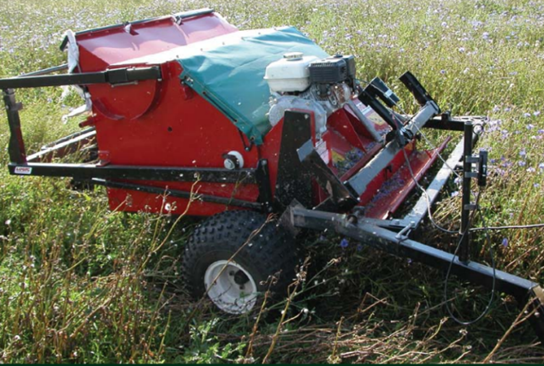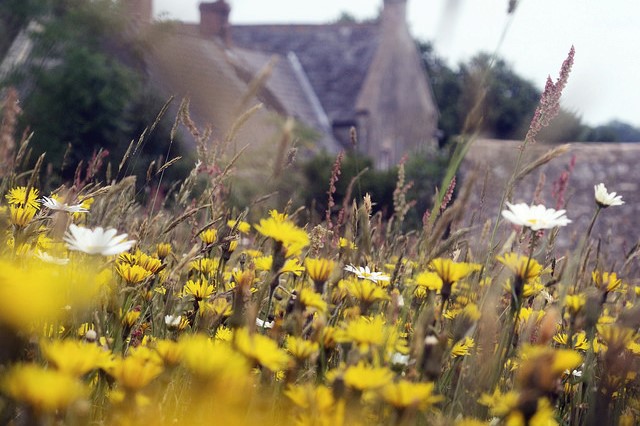Farming in Protected Landscapes – one year on
Farming in Protected Landscapes is a national programme administered by National Parks and Areas of Outstanding Natural Beauty (AONB) in England. Through the programme, Defra is providing funding for projects in England’s protected landscapes for one-off projects that support nature recovery, tackle climate change, provide opportunities for people to discover nature, or support sustainable farm businesses.
 This Farming in Protected Landscapes report, published this week, outlines what has been achieved with the programmes so far and includes case studies from around the country.
This Farming in Protected Landscapes report, published this week, outlines what has been achieved with the programmes so far and includes case studies from around the country.
In the Blackdown Hills, Farming in Protected Landscapes is proving to be a valuable tool in addressing a range of environmental opportunities and issues which other grant support schemes cannot reach. It is a locally administered scheme, flexible, and responsive to the needs of the local area.
During the first year of Farming in Protected Landscapes in the Blackdown Hills, we supported 24 projects across the AONB, to the tune of £138,000, covering such varied activities as looking after important springline mires, researching soil carbon, planting new hedges and laying existing ones, creating new orchards, acquiring a wildflower seed harvester, and supporting farm-based education projects.
You can read about one of the projects funded in the Blackdown Hills below.
Now, in the second year of the scheme, the Blackdown Hills’ Farming in Protected Landscapes team is working with 50 farmers and landowners. Projects in development include work to restore floodplain function on the Yarty River, changing hedgerow management in the Otter Valley to increase carbon storage, creating new farm ponds and restoring old ones. By early 2023, the team expects to have allocated approximately a further £200,000 to make these projects a reality.
Find out more about Farming in Protected Landscapes in the Blackdown Hills and how to apply.
Harvesting wildflower seeds
Goren Farm is a well-known supplier of high-quality wildflower seed across the South West and beyond, while its wildflower meadows provide an impressive local visitor attraction during the summer months. Julian Pady, who runs Goren Farm, approached the Blackdown Hills Farming in Protected Landscapes team to discuss ways of meeting the growing interest in wildflower meadows amongst buyers and visitors.
Demand for locally sourced wildflower seed is beginning to overtake supply, and Goren Farm recognises that new ways are needed to meet this demand, beyond what the farm itself can supply from its own land. Increasing numbers of landowners are wishing to restore traditional meadow flora on parts of their land. Meanwhile there is also a need for existing flower-rich meadows and pastures to gain an economic value which can help pay for their management. Hence the demand for seed and the desire for economic return can be linked together, if seed from existing meadows can be harvested and made available to those who want it.
A project was therefore developed with the Farming in Protected Landscapes team which involved the purchase of a brush harvester, to be hosted and maintained by Goren Farm and made available on loan to local landowners to harvest seed from their own land. A Logic MSH420 brush harvester has been acquired. It is a versatile, lightweight machine, towable behind a quad bike, ATV or small tractor. This means it can be used on small sites with wet or uneven terrain. Goren Farm has been using brush harvesters for 15 years now but their own harvesters are tractor-mounted and too big for use on uneven and remote sites.
 The brush harvester will be made available on a not-for-profit hire basis between competent operators in the local area. It is proposed that when the machine is needed, one of these operators will be able to use the harvester (with their own pulling machine) either for themselves or on behalf of another landowner. A small daily fee will be charged for transport, cleaning, greasing, maintenance, replacement parts and insurance. Instruction will be provided to operators, and they will be asked to sign a hire agreement. The harvester will reside at Goren Farm when not in use.
The brush harvester will be made available on a not-for-profit hire basis between competent operators in the local area. It is proposed that when the machine is needed, one of these operators will be able to use the harvester (with their own pulling machine) either for themselves or on behalf of another landowner. A small daily fee will be charged for transport, cleaning, greasing, maintenance, replacement parts and insurance. Instruction will be provided to operators, and they will be asked to sign a hire agreement. The harvester will reside at Goren Farm when not in use.
In addition, the project funded the purchase of seed cleaning equipment, in the form of a separator and set of indented cylinders, which will be used by Goren Farm to separate out the seed of eight key species from raw arisings gathered by the brush harvester, so that seed mixes can be designed to suit different soil types and conditions. The separator is a specialised machine comprising a rotating drum in which different cylinders are inserted, each with indents on the inside surface of a particular size. Material is introduced into the drum and seed of the desired size becomes trapped in the indents, while larger material passes through. The process both separates out the target seed, and cleans out the chaff, stems and other debris.
Having this machine will enable Goren Farm to extend its services to others, allowing local landowners to bring their meadow arisings to the farm and extract key meadow-creation species. It will also allow Goren Farm itself to offer more pure-seed or specific multi-seed mixes to its customers. The machine will hence have both a commercial value, and a community value by enabling others to make the most of their meadows.
This investment by Farming in Protected Landscapes will provide a major boost to the ability of the Blackdown Hills landowning community to strengthen the local supply of wildflower seed to meet local demand. It will encourage collaborative working between landowners, while consolidating the role of Goren Farm as an exemplar in this field, supported by the Area of Outstanding Natural Beauty.






